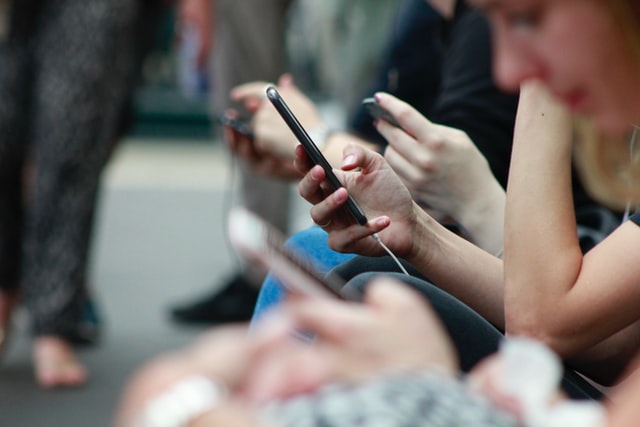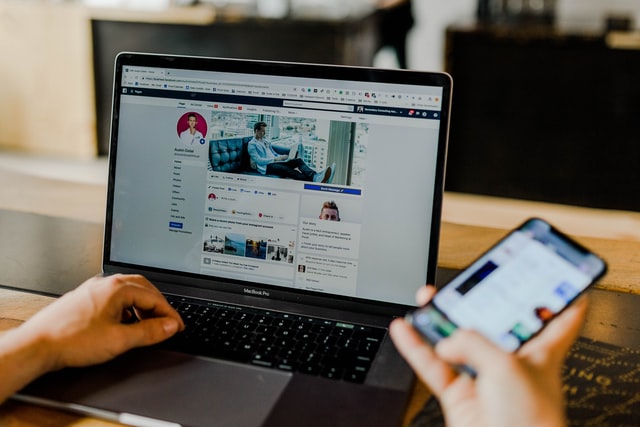In one way or another, data privacy has been an essential issue for a very long time. Nobody wants all of their private details exposed to strangers, be it something as potentially dangerous as the social security number in the United States, or maybe something they are simply unwilling to share even if it would not affect their lives, such as some habit or preference. And that is entirely alright, of course. In this article, we talk about the importance of data privacy.
People are, and should be, fully entitled to their privacy. However, with the rise of new technologies in the latest decades, more and more devices have appeared that we regularly use (if not almost constantly) that ask for and get lots of our information and data, even if we are often not aware of that.
After all, who reads all of the Terms of Service before downloading something on their phone? Almost no one. We assume that if the app is mainstream and can be found on App Store or Google Play Store, it is safe to use. Even when an app asks us for permissions, such as storage access, to mention one that often appears, we allow them without overthinking about it, again assuming that, if it were something dangerous, we would have heard about it or the app would have been removed from the store or deactivated.
The dangers of free apps
Research suggests that 50% of their users do not know if those services sell their data when it comes to free services. Spoiler alert, though; they probably do. Is it always for nefarious purposes? Well, it depends on what you consider contemptible. Free apps do not receive money from you, so they most likely receive it from ads they run on your phone.
Of course, targeted ads might have more success than completely random ones (people with interest in, let’s say, gaming, might want to buy different items from those interested in cars – not to say that those two interests cannot go together, of course, as this is just an example), and, because of that, an app might collect data from your phone so that they can suggest ads more personalized for you.
While organizing your data purely for customized ads might not sound terrible by itself (after all, if you must see ads, why not have them be about something you do not hate, right? But be careful, that’s how they get you to buy!), the fact is that this rule does not only affect potential ads.
Compare it to Instagram explore page or suggested articles you get in the Google Chrome app. Depending on your search history, pieces you open, or the posts and accounts you interact with, your explore page and suggested articles will vary greatly from someone else’s.
While this might simply mean you will get more suggestions tailored to your interests, it also means that you might slowly get only selected news and selected opinions on serious matters too, which can affect your perception of the world or any issues that might be happening around you. Suppose you and another person receive completely different coverage on something.
There can be no objective opinion on it, and that can cause an even greater divide among people in times where people are uniting and not being hostile could solve many problems and help everyone.
And these are just some of the issues that come with the things that apps plan to do with your data. Even if an app does not want to share your personal information, the dangers of it being hacked are always present, significantly if it is not updated regularly, both by the user and developer.
An additional issue is that cybercriminals will often make a malicious copy of a legitimate app in hopes of people downloading it thinking it is the actual app, and providing the information that can be abused, such as their passwords or payment method details. With that info, hackers can do tons of things that can cause lots of problems for you.
They can sell your data on the dark web, therefore providing other types of criminals with it, or they can use it themselves too, to mention just some of the options (if they have your passwords) lock you out of or take your accounts and then use them to steal your money or purchase something for themselves; (if they have your data) to blackmail you into giving them money by threatening to release your personal information or photos, to make phishing attacks seem more trustworthy, to attempt identity theft, or apply for loans in your name. And that is just the tip of the iceberg. Cybercriminals are getting more creative daily.
The importance of data privacy
It is crucial to be careful with the data you share on the internet and the data you allow apps on your phone to use. It is essential to use reliable apps found on Google Play or App Store and not download potentially risky files from random sites. If you want to download something not found in the official stores, do your research. If the app is legitimate, you will find information about that through multiple sources, and the same goes for not-legitimate ones.
Additionally, it is always a good idea to do research, even for apps found on the official stores, as you never know what might slip through their defenses. Another essential thing to check out is what data and permissions an app require from you to function correctly, and to think about whether you are willing to allow them, and, if not, is it possible for it to work without those permissions, and, again, if not, is the risk worth it. After all, sharing some data will most definitely be harmless, but you never know what can be used to harm you potentially.
Read more for expert advice to protect your privacy online on Porch.com



